 Petzlover
Petzlover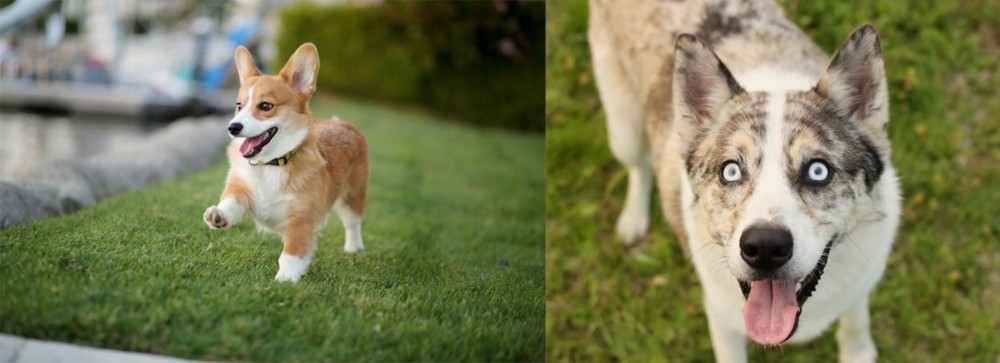 Corgi is originated from United Kingdom but Shepherd Husky is originated from United States. Corgi may grow 34 cm / 13 inches shorter than Shepherd Husky. Corgi may weigh 26 kg / 57 pounds lesser than Shepherd Husky. Both Corgi and Shepherd Husky has same life span. Both Corgi and Shepherd Husky has almost same litter size. Corgi requires Low Maintenance. But Shepherd Husky requires Moderate Maintenance
Corgi is originated from United Kingdom but Shepherd Husky is originated from United States. Corgi may grow 34 cm / 13 inches shorter than Shepherd Husky. Corgi may weigh 26 kg / 57 pounds lesser than Shepherd Husky. Both Corgi and Shepherd Husky has same life span. Both Corgi and Shepherd Husky has almost same litter size. Corgi requires Low Maintenance. But Shepherd Husky requires Moderate Maintenance
 Known as a cattle herding dog breed, the Corgi hails from Pembrokeshire, Wales. You get 2 breeds – the Cardigan Welsh Corgi and the Welsh Corgi.
Known as a cattle herding dog breed, the Corgi hails from Pembrokeshire, Wales. You get 2 breeds – the Cardigan Welsh Corgi and the Welsh Corgi.
The word ‘Korgi’ actually means ‘dwarf dog’. According to some, the small dog’s history goes back as far as 1107AD, but when you start doing research, you find that the Pembroke Welsh Corgi doesn’t have a traceable breed history.
The Pembrokeshire Corgi was officially recognized by the Kennel Club in the United Kingdom in 1934 and is a breed separate from the Cardiganshire Corgi.
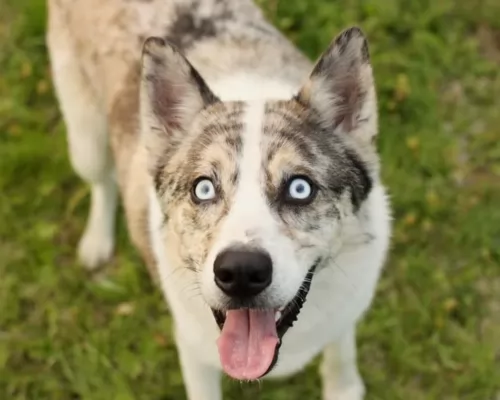 What a beautiful dog the Shepherd Husky is. He is a mix between the Husky and the German Shepherd. Other names for him include Gerberian Shepsky, German Husky and Siberian Shepherd.
What a beautiful dog the Shepherd Husky is. He is a mix between the Husky and the German Shepherd. Other names for him include Gerberian Shepsky, German Husky and Siberian Shepherd.
The German Shepherd originated in Germany and the Husky is from Siberia. We assume this mixed breed dog was bred in the USA. The true origin of the German Shepherd Husky dog is unclear but both the parent breeds have long histories.
The dog is recognized as a Hybrid by both the Dog Registry of America as well as the American canine hybrid Club.
 The Corgi is a small to medium sized dog, standing at 25 to 30cm and weighs between 10 to 14kg.
The Corgi is a small to medium sized dog, standing at 25 to 30cm and weighs between 10 to 14kg.
The coat of the Corgi is fairly short to medium length and is thick. You’ll find him to be available in colors such as red, fawn, black and tan and with white markings.
He has a sharp, intelligent face with an amicable expression. Looking much like a fox with short legs, he has a long, low-set body body and is a sturdy dog. His ears also stand erect and he has a docked tail.
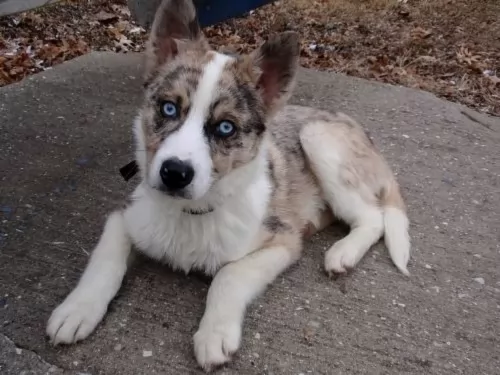 Solid and strong, the German Shepherd Husky mix is attractive. He is a fairly large dog standing at 51 to 64cm in height and weighing between 20 to 40kg.
Solid and strong, the German Shepherd Husky mix is attractive. He is a fairly large dog standing at 51 to 64cm in height and weighing between 20 to 40kg.
They’re powerful dogs these as they have a long history of being working dogs. The eyes of this beautiful dog can be brown, green or blue or a mix of these. The thick double coat protects them from the cold and in the warmer months, he sheds quite a bit.
The coat can be brown, black and tan or it can have creamy shades and be mixed with grey and white too.
The Shepherd Husky is a friendly, amicable dog who wants to please his owner. Training and socialization make him even more well adjusted. He is a dog that will get on well with children in the home as well as other dogs.
He is such an all rounder this dog – loyal, intelligent, social and loving - being great for accompanying you on walks and hikes but being willing to sit with you indoors too.
While he is adaptable and good natured and will happily live with his owner in the city or the countryside, he is better suited to life in the countryside. He also makes a great guard-dog.
 The sweet little Corgi is well known with his association with Britain’s Queen Elizabeth who has always loved these dogs with their long bodies and short legs. But while the Corgi may well be associated with royalty, he isn’t too snooty by any means to be your pet.
The sweet little Corgi is well known with his association with Britain’s Queen Elizabeth who has always loved these dogs with their long bodies and short legs. But while the Corgi may well be associated with royalty, he isn’t too snooty by any means to be your pet.
He has got a wonderful personality, and he is just waiting to be allowed into your household where he will prove to be a loving, devoted companion and friend.
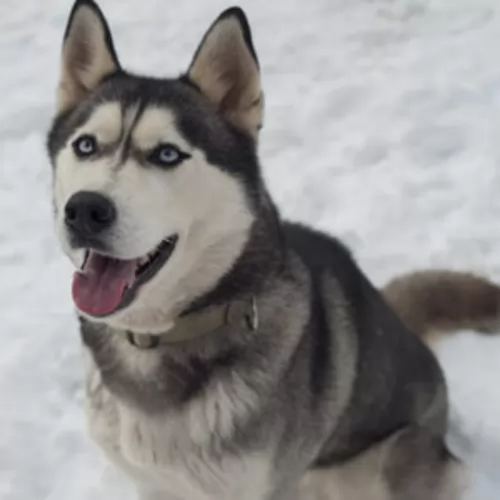 The German Shepherd Husky mix is such an ideal dog for single people, couples and families. This wolf-like breed is intelligent, loving,social and protective – the ideal family dog.
The German Shepherd Husky mix is such an ideal dog for single people, couples and families. This wolf-like breed is intelligent, loving,social and protective – the ideal family dog.
For those looking for an active dog that can be their jogging, walking and camping partner, this dog is for you. He loves to be busy, but he also loves being made a fuss of indoors too.
He has so many excellent qualities and is one dog breed that ticks all the right boxes for being such an all-round splendid pet and companion.
 A corgi, when he is well looked after, can live to be anything from 12 to 15 years of age. However even this sturdy dog may well be susceptible to some of the more common dog illnesses, such as hip dysplasia and degenerative myelopathy.
A corgi, when he is well looked after, can live to be anything from 12 to 15 years of age. However even this sturdy dog may well be susceptible to some of the more common dog illnesses, such as hip dysplasia and degenerative myelopathy.
Also you have to be careful with your Corgi and make sure that he doesn’t gain weight as this weight gain can bring with it a host of health complications.
Hip dysplasia with your Corgi is about an abnormal joint structure where the bones lose contact with each other. This parting of the bones is known as subluxation, and it is this subluxation that can cause your pet pain and discomfort and lead to osteoarthritis.
This disease isn’t reserved for old dogs either, and some young dogs can begin to show signs of this disease before they reach their first birthday. Without taking your dog to the vet and having medical intervention, your pet may eventually be unable to walk.
It is so sad when Degenerative Myelopathy invades your pet as it is a devastating disease watching your pet become paralyzed. The disease seems to come on when then dog is between 8 and 14 years of age where your pet loses co-ordination in the hind limbs, getting worse until he can no longer walk. Often your dog can no longer control his urine output.
There are no real treatments that have stopped the progression of the disease and your vet may suggest treatments that can make your pet more comfortable You vet may compassionately suggest your dog be put down, particularly for those people who can’t afford treatment.
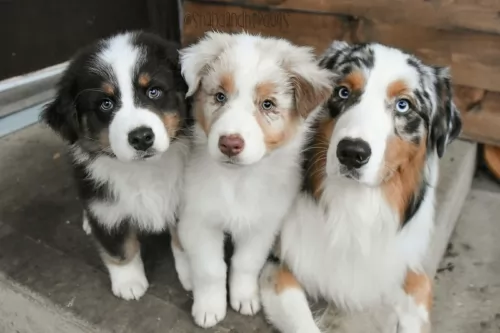 This is such a robust dog that you an scarcely think of him being sickly and yet there are some illnesses that are common to all dogs and which your German Shepherd Husky mix might get as well.
This is such a robust dog that you an scarcely think of him being sickly and yet there are some illnesses that are common to all dogs and which your German Shepherd Husky mix might get as well.
Hip dysplasia is common in German Shepherd dogs as well as arthritis and thyroid dysfunction. Bloat and cancer are other diseases to watch for.
Canine hip dysplasia is a genetic disease characterised as a disease of the hip. The malformation can lead to arthritis and pain and ultimately lead to the loss of hip function, crippling your dog.
You will need to get your pet to the vet for treatment to make his life more comfortable.
 The Corgi isn’t a particularly heavy shedder, so a brush down twice a week will be excellent for his thick coat. And of coarse he will thrive on the attention given to him during the brushing session.
The Corgi isn’t a particularly heavy shedder, so a brush down twice a week will be excellent for his thick coat. And of coarse he will thrive on the attention given to him during the brushing session.
Corgis love walks and sniffing around as they go along. They’re energetic dogs so you’ll need to include him in your daily walks which he just loves, and include him in some ball games.
Corgis may be short in stature but they are robust dogs – sturdily built. They are active dogs and can use up a lot of calories. They will certainly require a diet that features good quality protein.
Feed your Corgi a good quality food designed for special life stages – puppy, adult, pregnant female, senior dog and also dogs with illnesses.
Most Corgis do well having 2 meals of kibble a day. Puppies usually eat 4 meals a day until they are old enough to move onto an adult feeding schedule. Include cooked rice, meat and vegetables in his diet as well as raw meat from time to time and ensure there is always a bowl of clean, cool water available.
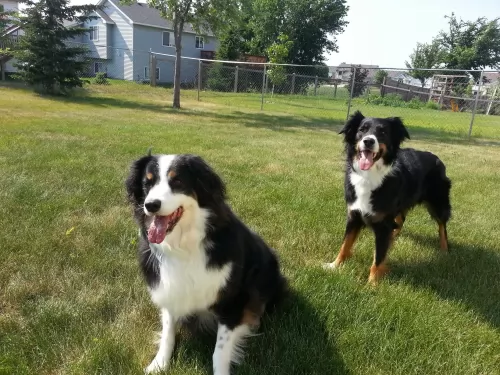 ◆Brush the coat of your Shepherd Husky twice a week to rid the coat of loose hairs. This dog’s hair sheds quite heavily as the weather warms and he may require brushing more often.
◆Brush the coat of your Shepherd Husky twice a week to rid the coat of loose hairs. This dog’s hair sheds quite heavily as the weather warms and he may require brushing more often.
◆When you brush him, check the ears and eyes for infection. The eyes must be bright and clear.
◆Feed your Shepherd Husky the best food there is as he is an energetic, working breed. The commercially manufactured foods can be a good, convenient choice but you need to make sure it is one of the better brands.
Some of the cheaper brands are full of bad ingredients that can make a dog sick.Try and give him some home-made foods that are healthy and nutritious. This food can be added to his dry kibble twice a week.
Boiled chicken, brown rice or pasta and spinach, sweet potatoes and carrots are a tasty healthy choice for your pet. Try and include some raw meat into the diet as well.